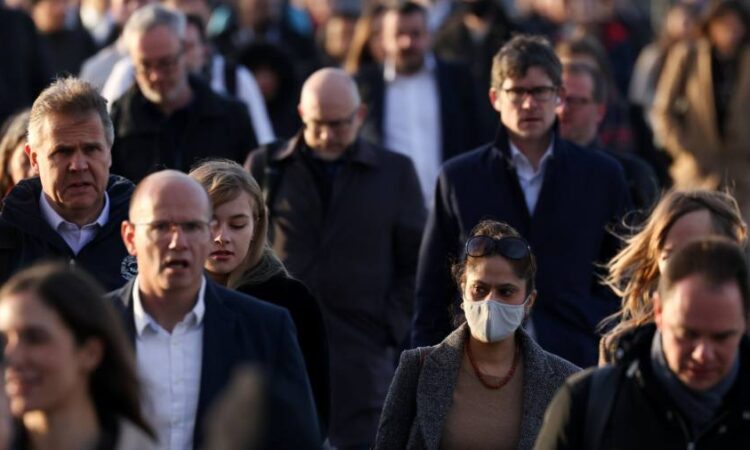
Ministers seeking to boost the UK’s workforce should crack down on pension freedoms and tax breaks that encourage wealthy people to retire early, according to an influential think-tank.
In a report on Tuesday, the Resolution Foundation set out a series of measures aimed at tackling the post-coronavirus pandemic rise in economic inactivity. That is now a crucial focus for Chancellor Jeremy Hunt, as he looks for ways to improve the UK’s growth prospects in his Budget on March 15.
Hunt has already promised reforms to help people with long-term health conditions or mental illness into employment, while also urging people who have retired early since the onset of Covid-19 to return to the workplace.
But the foundation said the government should also revisit “highly regressive” tax breaks that encourage some of the highest earners to start drawing pensions as early as their mid-fifties “at considerable expense to the taxpayer”.
This should be part of a package of general measures aimed at helping older workers and those with a disability to stay in work, and improving childcare support to help mothers into employment, it said.
The UK is unusual among developed economies because people rely to a much greater degree on private pensions than on payments from the state. Private pension wealth in 2020 amounted to almost 130 per cent of gross domestic product, compared with just 8 per cent in Germany.
People can start accessing defined contribution private pensions from the age of 55; that threshold will rise to 57 from 2028 but will still be 10 years below the state pension age. They can also take up to 25 per cent of their pension pot as a tax-free lump sum up front.
“This amount is uncapped, meaning it is highly regressive,” the think-tank said, calling it “hard to justify” a situation where wealthy individuals paid no tax on sums running into hundreds of thousands of pounds.
The foundation called on the government to raise the age at which people could access private pension pots and cap the amount exempt from tax, rather than increasing the state pension age further — which it said would hit poorer people with lower life expectancy hardest.
But there was little point in trying to persuade a “Covid cohort” of lost workers to return from early retirement, it added.
Although unemployment is near record lows, the number of working-age adults who are neither in work nor looking for a job has risen by more than 500,000 to 8.9mn since early 2020, adding to staffing pressures in many sectors.
This is a sharp reversal of the pre-pandemic trend — in which UK economic growth was driven by an expanding labour force as more mothers and older women stayed in work. It is also unique to the UK, with labour participation in most rich economies now higher than pre-pandemic.
But the foundation said many people who had left the labour market were well-off professionals who had paid off mortgages, did not claim benefits and were unlikely to “unretire”. Although the number of people out of work owing to ill health has also risen sharply, this increase largely concerned people who left the labour force before the onset of the pandemic.
However, the think-tank said measures to prompt older workers to stay in jobs and help them do so would become all the more important over the decade ahead as the UK population aged.
The Department for Work and Pensions said it was “thoroughly reviewing” workforce participation to understand what action should be taken. It added that, as part of this work, it was looking at plans to improve support for the disabled and long-term sick, and expanding employment support for the over-50s.






